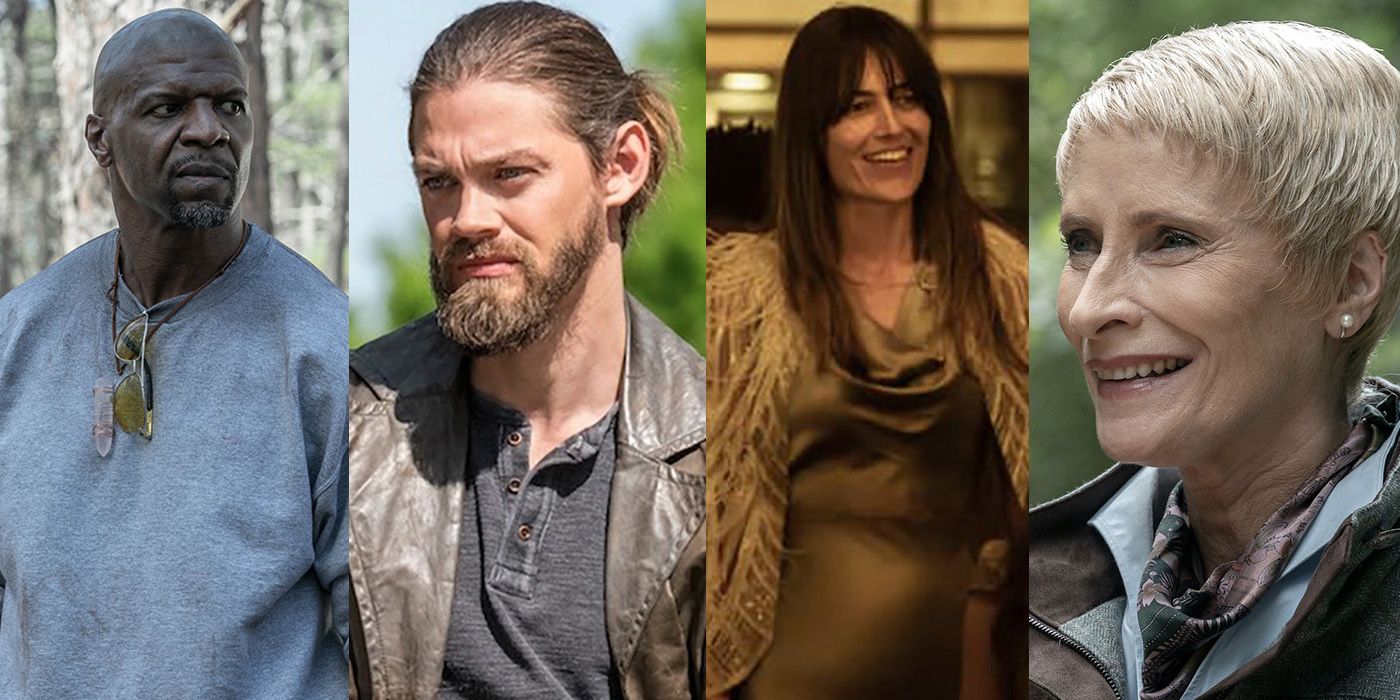
Five episodes in, the Tales of the Walking Dead characters who have been introduced so far have run the gamut, from heroes to villains, funny to stoic, and even a few familiar faces, like Alpha (Dee) and Lydia. The anthology series has shaken up the usual format to bring more comedic tones and different genres to The Walking Dead family.
Fans have been loving the episodes so far, and have even made connections between the new characters and those from The Walking Dead and Fear the Walking Dead whom they have come to appreciate…or loathe.
Joe: Jesus
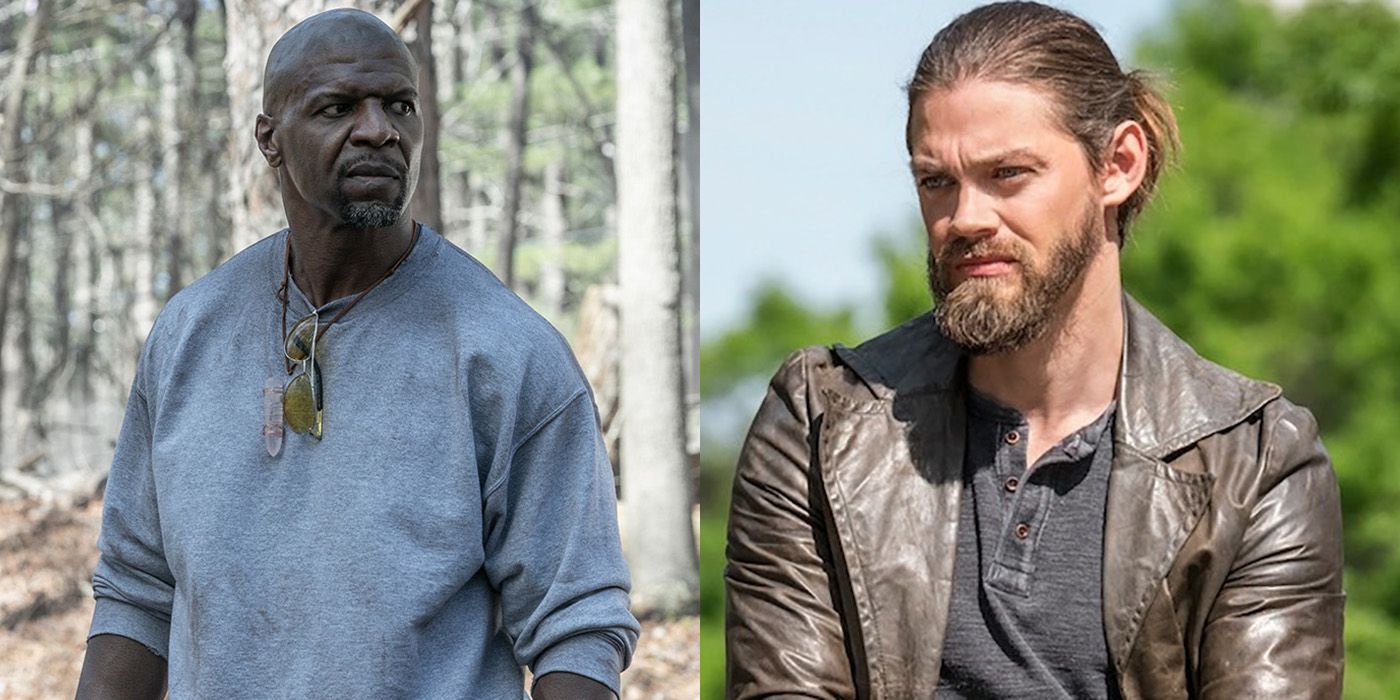
Much like Jesus from The Walking Dead, Joe was skilled, funny, and very much a lone wolf. He didn’t get too close to others, preferring instead to stick to himself. But he also yearned for companionship and realized through the episode that he wished he had spent more time on that side of himself before the apocalypse.
Joe’s budding friendship with Evie can be likened to Jesus’ eventual friendship with Maggie. While Jesus was the skilled martial artist and fighter, it was Maggie who took on the leadership role and was there to save him in more ways than one. This mirrors the pairing of Joe and Evie as well.
Evie: Maggie
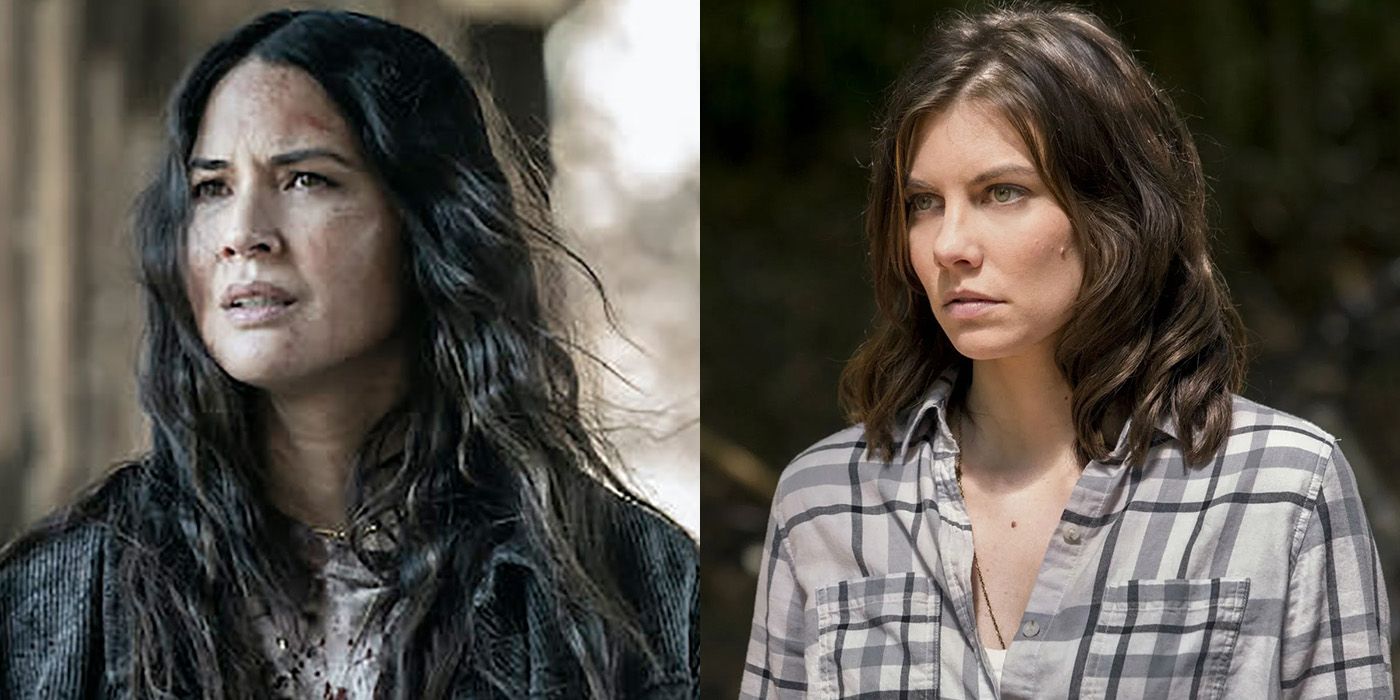
Evie — one of the most likable characters in Tales of the Walking Dead — can be likened to Maggie on The Walking Dead. Evie is a hippie vegan who had aspirations of growing her own fruits and vegetables and loves the idea of living off the land. Maggie, meanwhile, grew up on a farm with her father and younger sister, and had similar knowledge and values in life.
But both were also strong, independent women who could take care of themselves. They learned how to fight, had strong instincts, and were guarded when it came to who they got close to. They were leaders who weren’t afraid to take the reins should an opportunity present itself, and never felt intimidated by anyone.
Sandra: Teddy
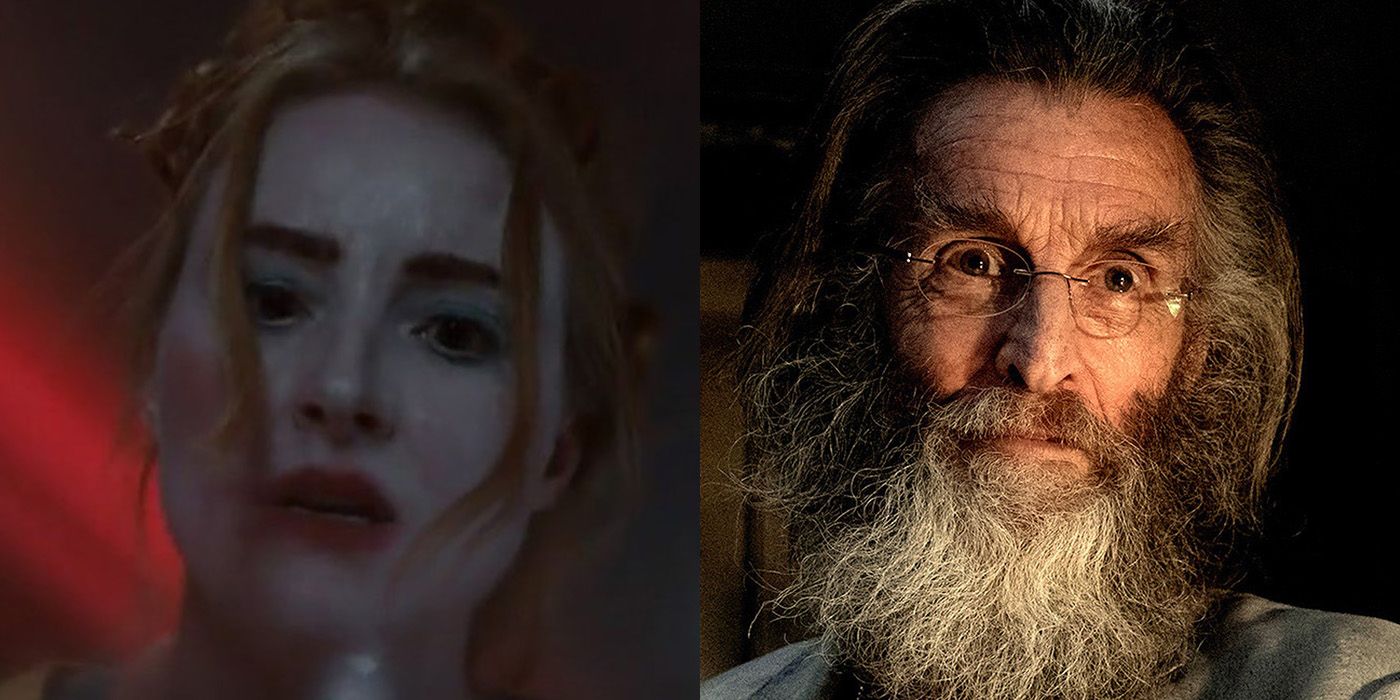
Teddy is the single serial killer introduced in Fear the Walking Dead. That is, until Sandra came into play. While it’s unclear whether Sandra was this way pre-apocalypse or just descended once the world fell, her instinct to kill and her ritualistic behavior were similar to Teddy’s.
While he ran a cult and had been murdering people for a long time, Sandra liked to lure men into her home, drug them, steal their watches (which she put on display) and kill them. Teddy was able to lay on the charm and manipulate his victims. Sandra was able to do this as well, like when she greeted Joe with such warmth and sweetness before revealing her true, evil self.
Blair: Andrea
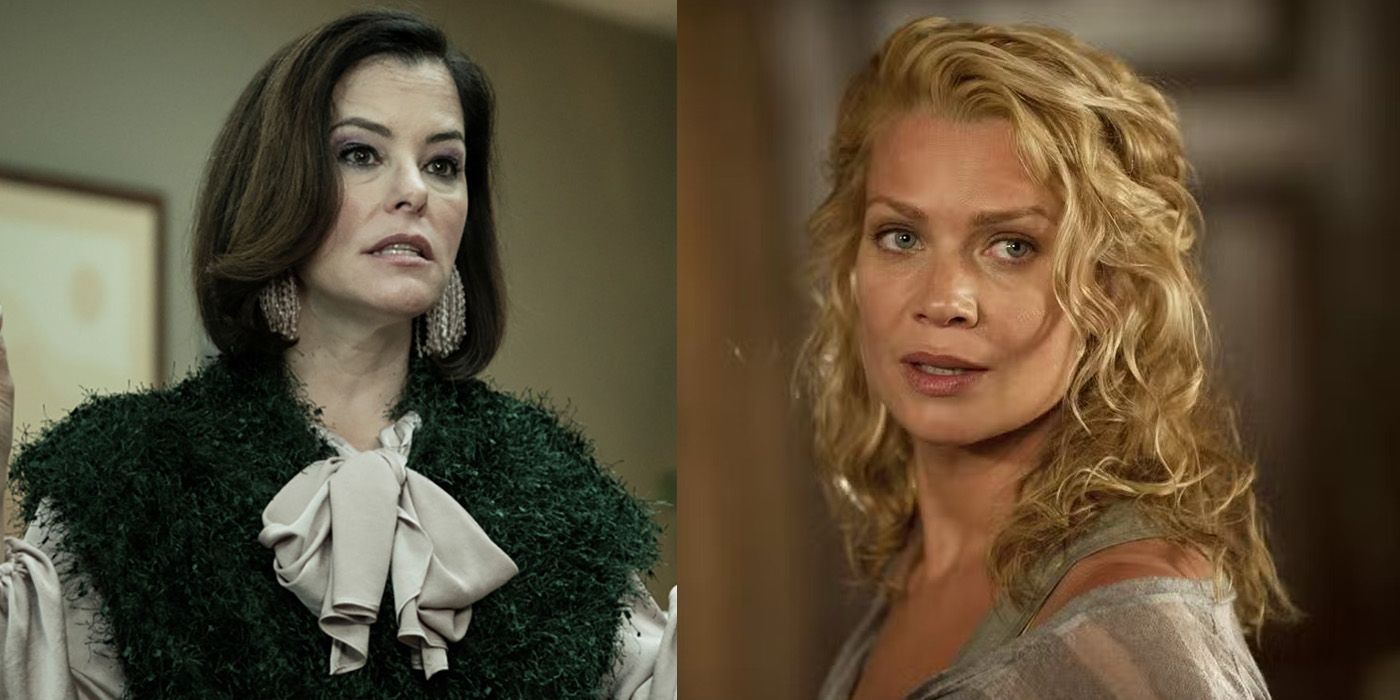
Blair was self-absorbed and only looked out for herself, which some might say of Andrea as well, who was one of the most irritating characters in The Walking Dead. Despite her strong bond with Michonne, Andrea made the decision to protect herself by cozying up to the Governor. She watched her friends get put in harm’s way, just as Blair did, and didn’t do much to help the situation, even if she didn’t like it.
When the chips were down, both women would likely have saved themselves before anyone else. But they also both came to their senses in the end, enjoying some form of character redemption.
Gina: Carol
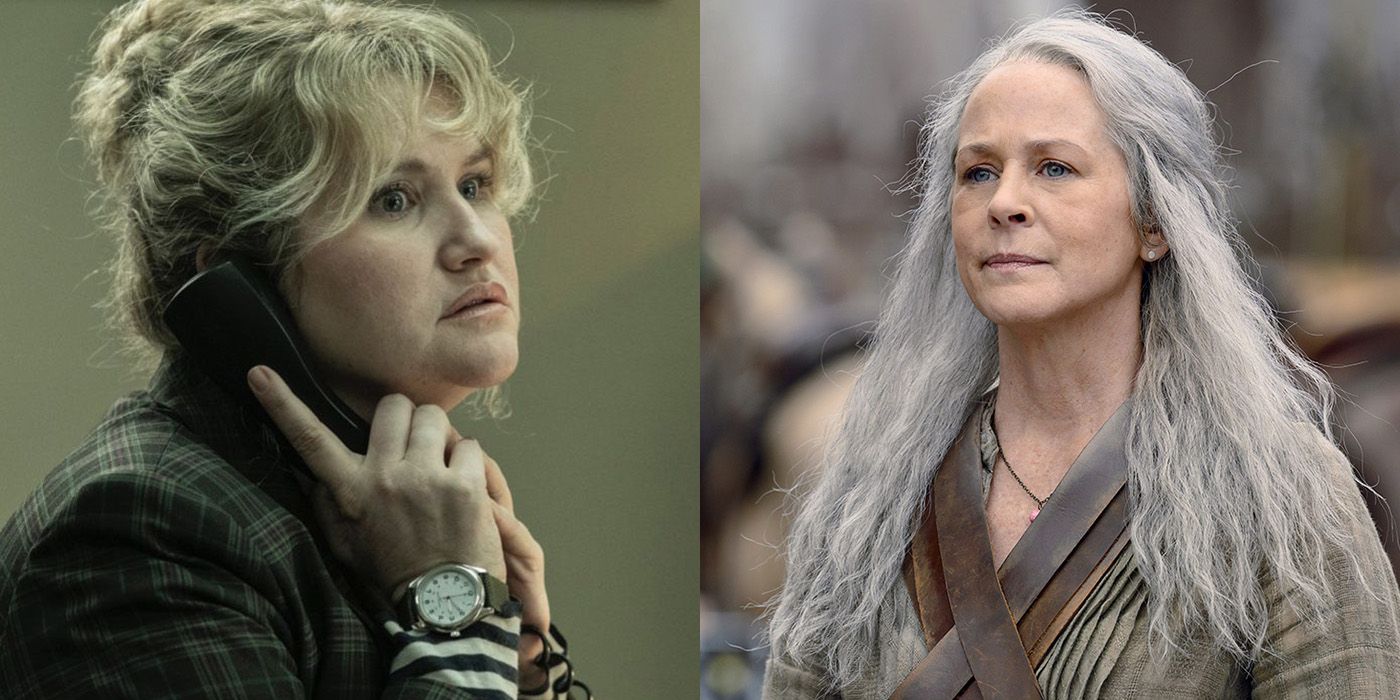
Like Carol, Gina was abused and quiet in the beginning. While Gina’s abuse was at the hands of her boss and was mostly verbal and emotional in nature, Carol suffered both physical and emotional abuse from her husband.
By the end, however, Gina exhibited very Carol-like personality traits, including finally speaking up for herself and demonstrating cleverness and foresight to help get her and Blair out of jams. While the tone was far more comedic with Gina, she had a similar arc to Carol, albeit in a much quicker timeline and less harrowing way.
Officer Leo Rogers: Rick Grimes
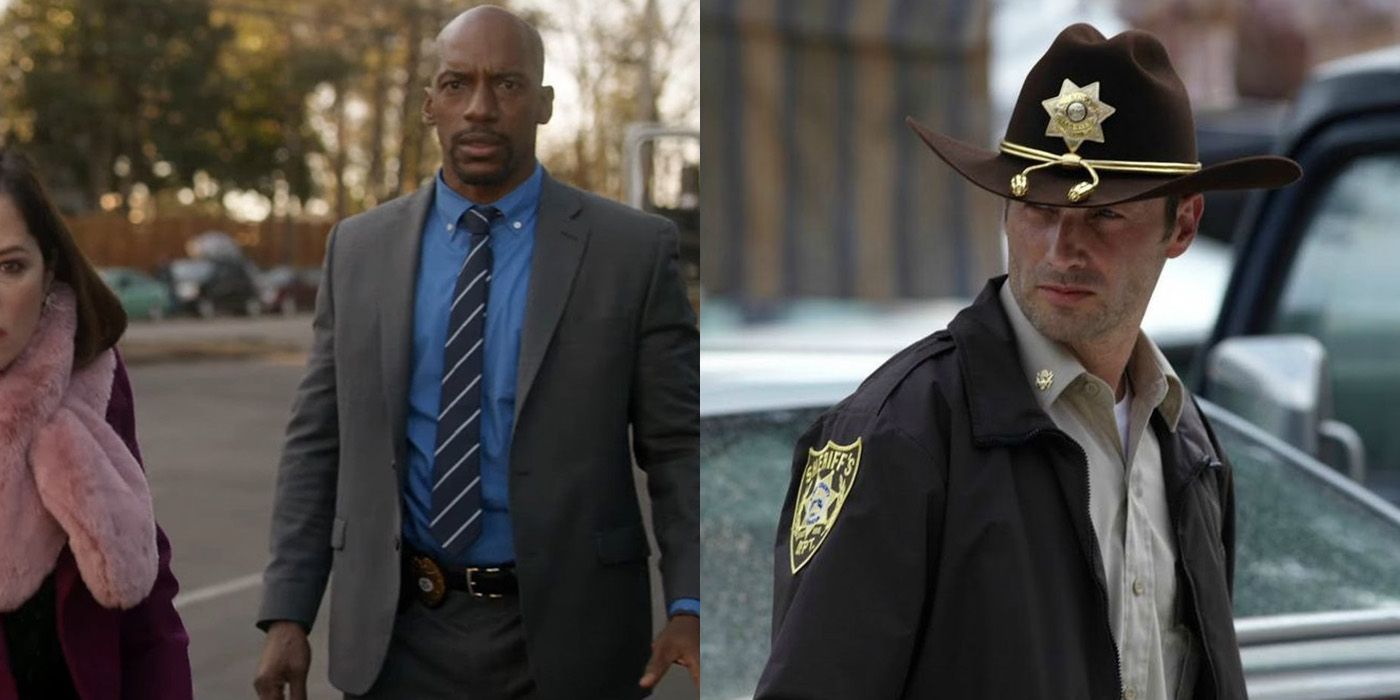
Officer Leo Rogers was only a minor character in the second episode, but as a man of the law, he would immediately be likened to Rick Grimes. All he wanted to do was keep the peace and save his son.
Like Rick experienced with Carl, Leo watched his son, in some of the time loop scenarios, faced with danger and tried desperately to help. Carl’s death was one of the most unexpected character deaths on The Walking Dead and put Rick into deeper heartbreak. Leo was lucky enough not to have to deal with that scenario due to the time loop. Leo also tried to stop Gina from doing something she would regret, which is exactly what Rick would have done in the same situation. Had he been a major character, Leo might very well have been the peacekeeper and leader like Rick.
Dee: Alpha
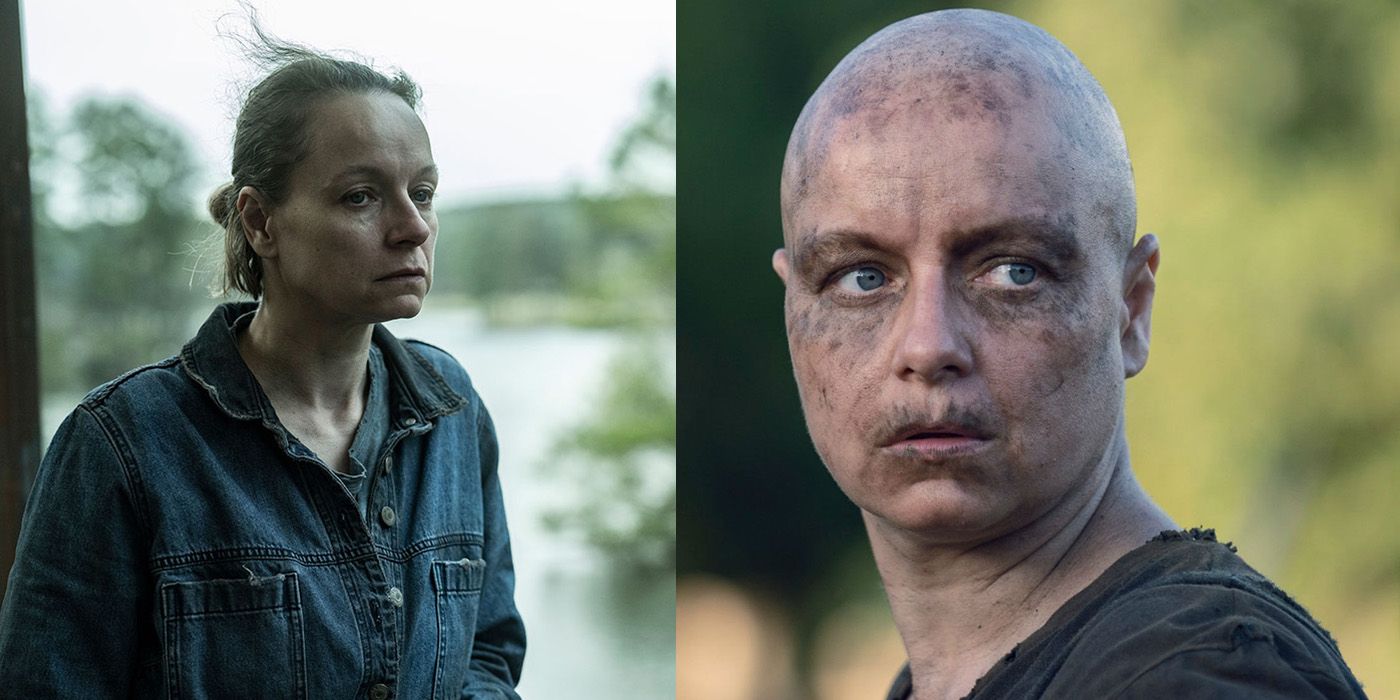
Naturally, Dee’s character counterpart on The Walking Dead would be Alpha since they are one and the same. While the true Alpha persona didn’t come out until the end of the episode, fans got to see another side of Dee. It appeared she was always troubled but hadn’t yet found her place in the new world, and clearly hadn’t found it in the old one either.
Fans saw Dee take insults and harsh words from others like Billy and Brooke that Alpha would have never stood for — she would have killed them instantly. Nonetheless, deep down, Dee’s Alpha side was always there, just waiting to emerge.
Lydia: Lydia
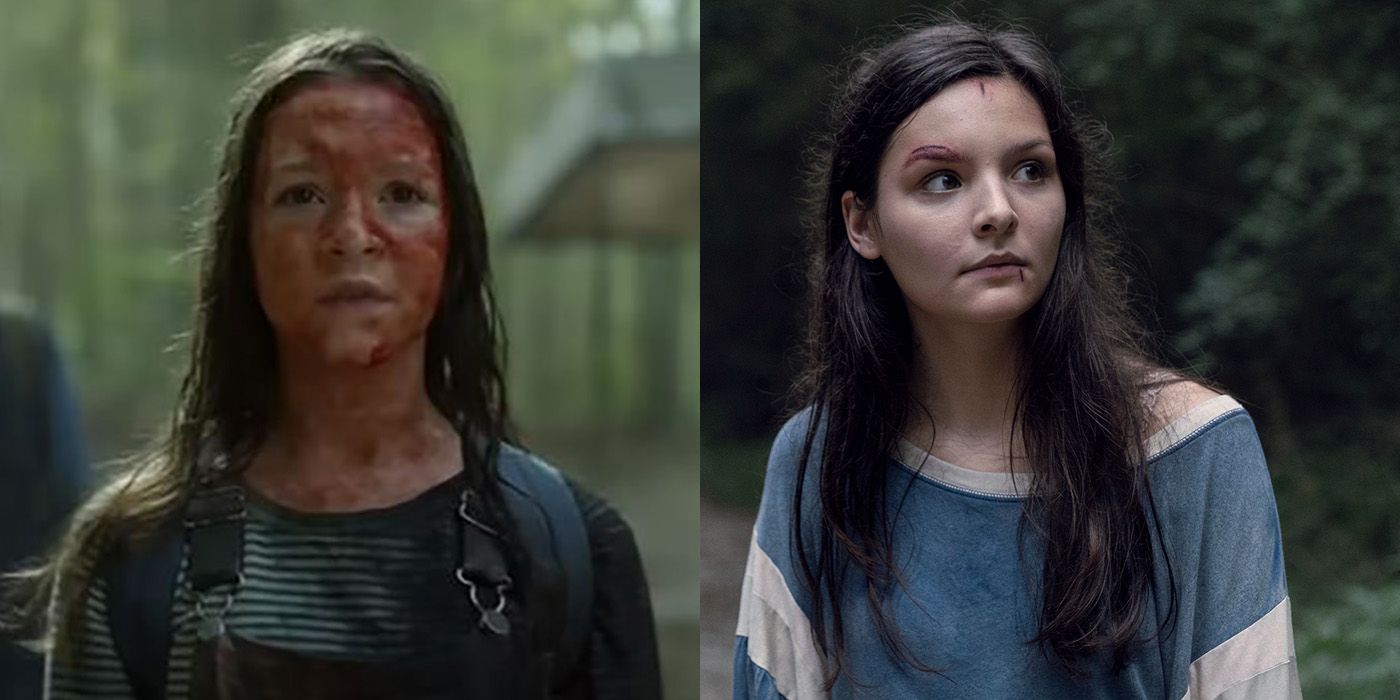
Just as with Dee and Alpha, Lydia’s counterpart is her older self on The Walking Dead. A teenager and one of the bravest child characters in The Walking Dead, Lydia is shown as a pre-teen in Tales of the Walking Dead. She seemed like a different person, a young girl with hope for a better life provided by the leader of the boat, Brooke, who had seemingly taken Lydia under her wing.
The Lydia fans met was far more broken after years of living off the land with her mother, donning the facial skins of the dead, and being in constant fear of not only enemies but her own mother. Nonetheless, seeing a young Lydia gave fans further perspective into what the young girl went through, including the loss of her father and a mother figure she held dear.
Brooke: Pamela
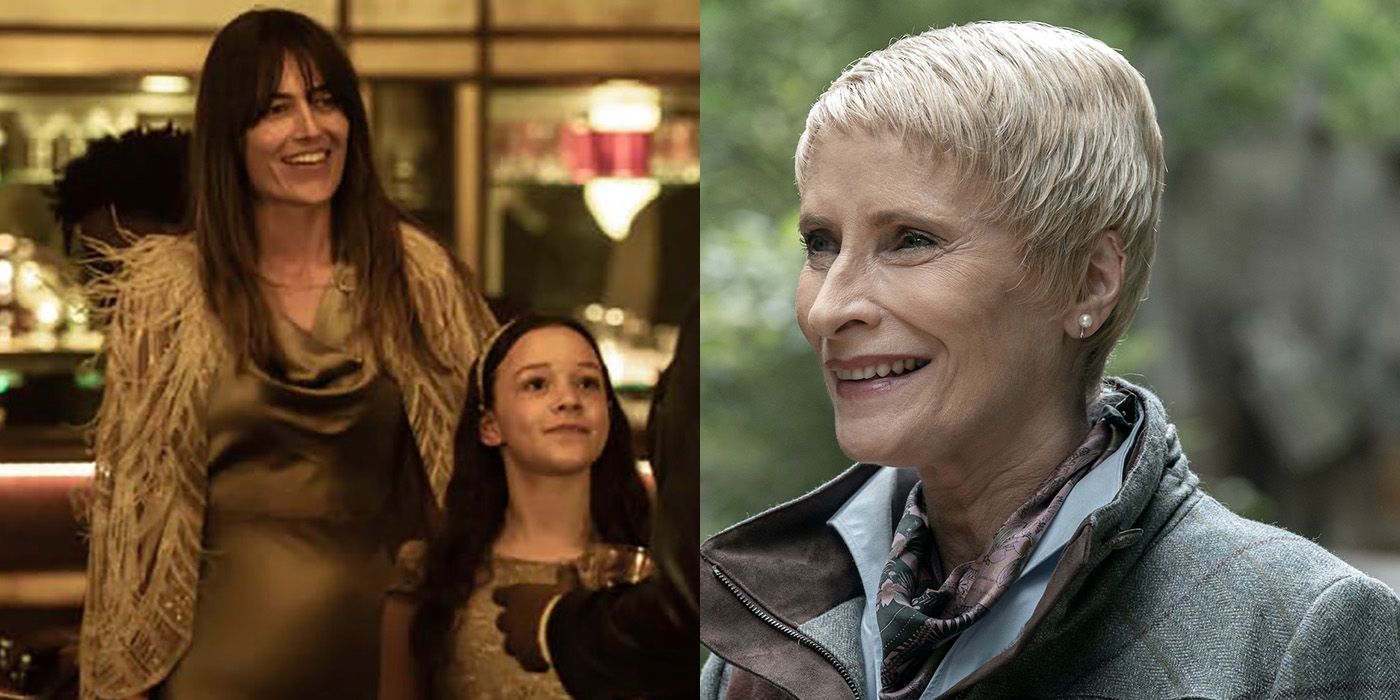
Like Pamela, Brooke was the leader of an early apocalypse group that was seemingly divided by some sort of class system. While Brooke wore fancy dresses and threw elaborate parties on the boat, others, like Dee, were tasked with working-class jobs, like cleaning up, setting tables, and tending bar.
Brooke didn’t seem inherently evil, nor did Pamela. But neither were afraid to make difficult decisions that not everyone agreed with. They both cared deeply about their people and wanted to create a better world in dire circumstances, and felt they had a system, team, and place that could achieve it.





